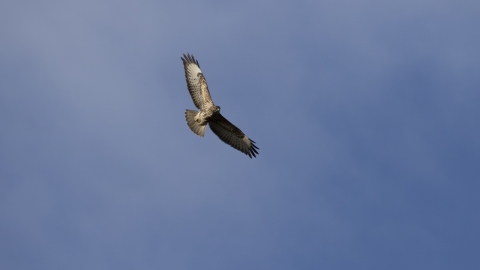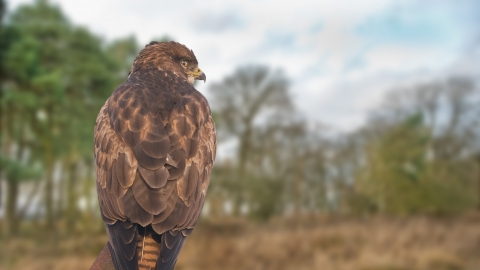
©Chris Lawrence

©Bob Coyle
Buzzard
Scientific name: Buteo buteo
Listen out for the cat-like, 'kee-yaa' calls of the buzzard as it soars high over farmland and woodland. Once suffering from severe persecution and pesticide poisoning, it has made a stunning comeback to most of the UK.
Species information
Category
Statistics
Length: 54cmWingspan: 1.2m
Weight: 780g-1kg
Average lifespan: 12 years
Conservation status
Classified in the UK as Green under the Birds of Conservation Concern 5: the Red List for Birds (2021).
When to see
January to DecemberAbout
Until recently, the buzzard was only found in the north and west of the country due to severe population declines. Over the last couple of decades, however, it has been doing very well and can now be found almost everywhere in the UK. Listen out for its cat-like,'kee-yaaa' calls as it soars in high circles over grassland, farmland and woodlands. Buzzards eat small birds, mammals and carrion, but will also eat large insects and earthworms when prey is in short supply.How to identify
Buzzards are the most frequently seen medium-sized birds of prey. They have broader wings and shorter tails than the harriers or red kite. Their plumage can vary from a uniform dark brown to much paler shades.Distribution
Widespread.Did you know?
In the spring, male buzzards perform a 'roller coaster' display, soaring up high and then swooping down over and over again to attract a mate. Once paired, buzzards construct their bulky nest in the fork of a large tree, often near to a wood. The female will lay between two and four eggs, which take just over a month to hatch.Watch
Buzzard by Martin Roper
